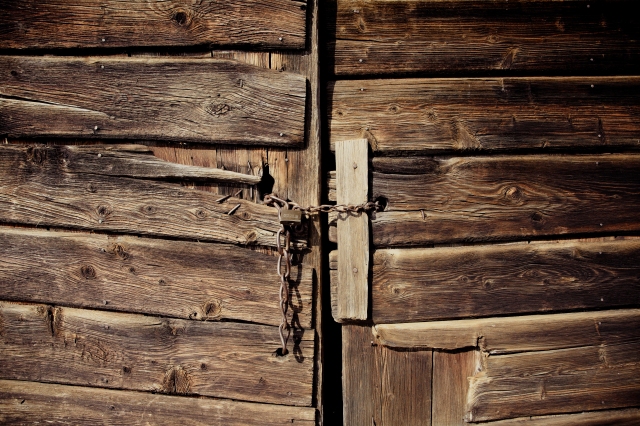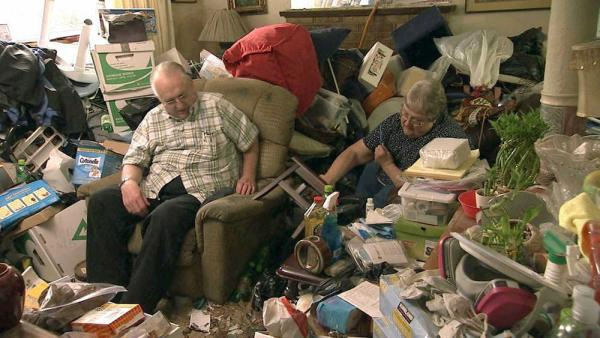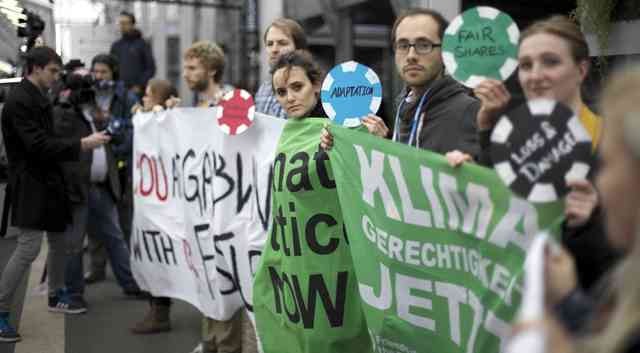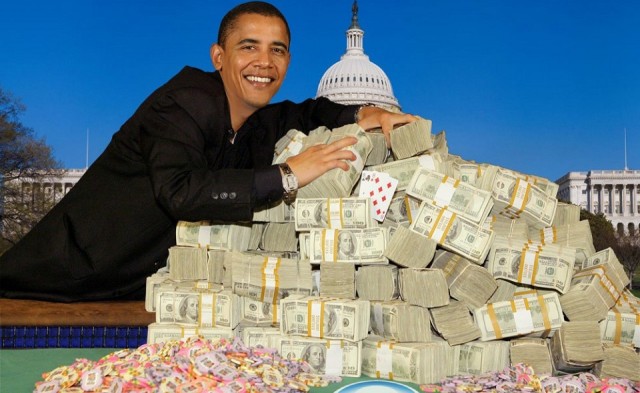COP day 3 – update from the inside
 This year, civil society is having lots of trouble following the negotiations at COP. Even those on the inside, with a badge, are excluded form many of the meetings. This raises the question: what they are hiding? Civil society (environmental groups on the inside) have to rely solely on the updates they get from allied developing countries’ parties. So, for the next few days, actions from environmental groups will target this issue. This is very important because if we don’t get to follow the negotiations, it is very difficult to get our voices heard. We can’t act on something we don’t know is happening!
This year, civil society is having lots of trouble following the negotiations at COP. Even those on the inside, with a badge, are excluded form many of the meetings. This raises the question: what they are hiding? Civil society (environmental groups on the inside) have to rely solely on the updates they get from allied developing countries’ parties. So, for the next few days, actions from environmental groups will target this issue. This is very important because if we don’t get to follow the negotiations, it is very difficult to get our voices heard. We can’t act on something we don’t know is happening!
What we know from how negotiations are going so far:
 A so called negotiations text has to be prepared by the parties by tomorrow. This is a document that will provide a start for actual negotiations and can include topics that need to be discussed before sealing the deal. At the moment Net Zero is not in the text. Net Zero is a term used for Carbon Capture Storage or geo-engineering and is basically a way for companies to store their CO2 deep in the ground. While this is a way of lowering a countries pollution level on paper, it is a very difficult and uncertain method and the CO2 can still leak out to the atmosphere = not a legit method, kind of like hoarding. Therefore, civil society groups on the inside will push for Net Zero to be put in the negotiations text.
A so called negotiations text has to be prepared by the parties by tomorrow. This is a document that will provide a start for actual negotiations and can include topics that need to be discussed before sealing the deal. At the moment Net Zero is not in the text. Net Zero is a term used for Carbon Capture Storage or geo-engineering and is basically a way for companies to store their CO2 deep in the ground. While this is a way of lowering a countries pollution level on paper, it is a very difficult and uncertain method and the CO2 can still leak out to the atmosphere = not a legit method, kind of like hoarding. Therefore, civil society groups on the inside will push for Net Zero to be put in the negotiations text.

The Least Developed Countries bloc are now calling for 1.5 degrees max temperature rise, stating that the 2 degree target proposed is inadequate. IPCC’s calculations presented yesterday project a 2.8 degree min rise with the deal we have today. Nicaragua made an official statement yesterday saying they will pull out of the deal completely since they don’t want to be part of an agreement that will lead to catastrophic results, and called for other countries to join them.
 At the moment, there are lots of discussions going on about the differentiation between developed and developing countries. The US for example doesn’t want to recognize ‘rich’ and ‘poor’ countries. The G77 + China bloc is calling for developed countries to do their ‘fair shares’ and increase their INDCs (intended national determined contributions). Yesterday’s action by Young Friends of the Earth and other environmental groups, was targeted at this, criticizing the developed countries that attempt to remove historical responsibility from a potential global agreement. As it is now, India and China are portrayed as ‘the bad guys’ who are polluting the most. But actually, many developed countries are going beyond their ‘fair shares’, while developed countries are about 5 times below. So civil society is on G77’s side on this one.
At the moment, there are lots of discussions going on about the differentiation between developed and developing countries. The US for example doesn’t want to recognize ‘rich’ and ‘poor’ countries. The G77 + China bloc is calling for developed countries to do their ‘fair shares’ and increase their INDCs (intended national determined contributions). Yesterday’s action by Young Friends of the Earth and other environmental groups, was targeted at this, criticizing the developed countries that attempt to remove historical responsibility from a potential global agreement. As it is now, India and China are portrayed as ‘the bad guys’ who are polluting the most. But actually, many developed countries are going beyond their ‘fair shares’, while developed countries are about 5 times below. So civil society is on G77’s side on this one.
 There are also discussions going on over finance (green fund etc.). Global North countries are discussing whether they want to support less countries on their sustainable development that they are doing now. They are thinking of taking most of the African countries out of these fundings.
There are also discussions going on over finance (green fund etc.). Global North countries are discussing whether they want to support less countries on their sustainable development that they are doing now. They are thinking of taking most of the African countries out of these fundings.
7 days left to push for a fair deal guys!
Many climate hugs if you made it through this whole post. Come back tomorrow for more updates!


[…] mentioned yesterday, this (how, and if, the Paris agreement differentiates between countries that do and don’t have […]
LikeLike